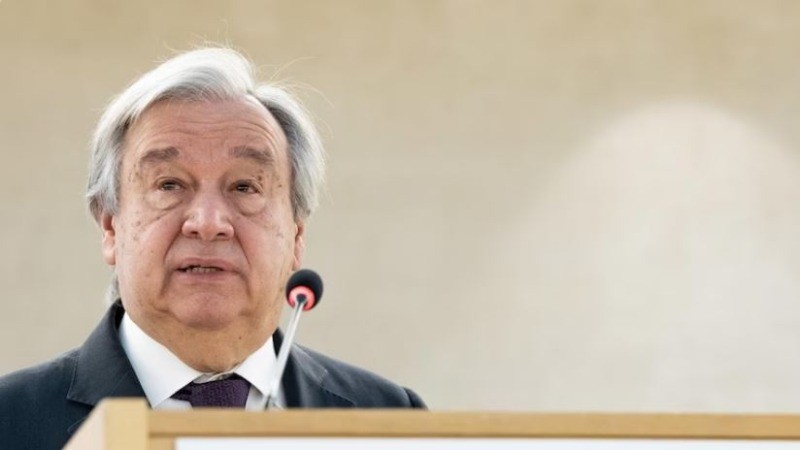
The United Nations:: On the occasion of the International Day of Non-Violence, UN Secretary-General Antonio Guterres emphasized Mahatma Gandhi's enduring message of non-violence, peace, and equality. Expressing concern over the current global landscape marked by conflicts and violence, Guterres highlighted Gandhi's belief in the power of non-violence as the greatest force available to humanity.
Speaking about the significance of Gandhi's legacy, Guterres said, “On this day, we commemorate Mahatma Gandhi’s birthday and reaffirm the values he championed: equality, respect, peace, and justice.” He pointed out that the world today faces numerous violent conflicts, citing wars in Ukraine, Sudan, the Middle East, and beyond, along with rising inequality and climate crises.
Guterres underscored that Gandhi believed non-violence was stronger than any weapon and called for collective efforts to build institutions that support this vision of peace.
A special event titled "Gandhian Values and the UN Charter" was held at the UN headquarters, organized by India’s Permanent Mission to the United Nations. Ivor Fung, speaking on behalf of the President of the 79th session of the UN General Assembly, shared that Gandhi's life serves as a powerful example of peaceful protests, inspiring leaders such as Nelson Mandela and Martin Luther King Jr.
Fung noted that in today's turbulent world, with conflicts raging from Gaza to Myanmar, Gandhi's message of peace is more relevant than ever. He urged the international community to honor Gandhi's values and reaffirm their commitment to the principles outlined in the UN Charter, promoting peace, justice, and human rights.
India’s Permanent Representative to the UN, Parvathaneni Harish, also paid tribute to Gandhi, reflecting on how his ideals continue to guide efforts toward global peace and stability. Harish said that Gandhi's philosophy of non-violence and moral courage remains essential in shaping a peaceful world.
Sri Lanka's Permanent Representative to the UN, Mohan Pieris, spoke about the alignment between Gandhi’s values and the UN Charter, stressing the importance of peaceful conflict resolution. Pieris also pointed out that Gandhi's principle of "Ahimsa" (non-violence) continues to influence global movements and inspire international cooperation.
However, Pieris acknowledged that while Gandhian values align with the UN’s founding principles, critics argue that the global system sometimes prioritizes Western interests, which may conflict with Gandhi's vision of decentralization and economic independence.
The UN observes the International Day of Non-Violence on October 2, honoring the birthday of Mahatma Gandhi. Established by the General Assembly in 2007, this day aims to spread the message of non-violence through education and public awareness, reaffirming the universal importance of peace, tolerance, and understanding.
International Day of Non-Violence 2024: Commemorating Gandhi’s Legacy of Peace
October 2 Celebrations: How Gandhi and Shastri Defined India’s National Spirit